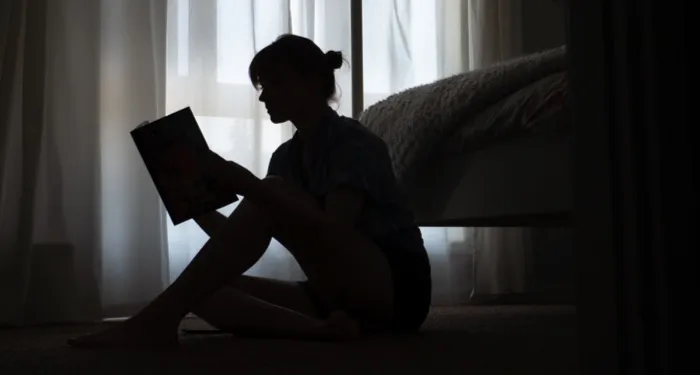
How I Learned To Stop Mourning Problematic Authors
It’s a fact indisputable by nature that authors are not perfect beings; like everyone, they fall on a spectrum of good and evil. We all fall on this same wondrous range of morality. No one is perfect, and typically society accepts that. However, one of the most difficult times to accept someone else’s spectrum-ness is when that someone makes art you like.
The death of the author movement attempts to reread texts while ignoring the screaming ghost of the author at your chamber door. It’s all very nice and convenient, but it ignores the fact that by simply reading the damn text you contribute to the author’s legacy. For some authors, it is enough to simply throw up your hands and say “well, perhaps they were a bit problematic,” but for other authors, specifically authors you read as a child, the subject is trickier.
To start with, no one likes being fooled and no one enjoys feeling like they were lied to. This acceptance is especially hard if you were a voracious reader as a child. If you were, you probably had a grandiose sense of your own intellectualism (I certainly did), and to admit that the author who you childishly threw your entire selfhood behind is, in fact, a Bad Person, is heartbreaking.
When it comes to Road Dahl, I have a very childlike tendency to first think “I was fooled, hoodwinked, bamboozled,” but the fact remains that his history was common knowledge and his antisemitism was on the very page of the book I loved so much, Matilda—a cliche, I realize, but as a child I had no knowledge of the tropes that would mark my own adult work as corny. There was no attempt at manipulation on Dahl’s part, but I was a Jewish child, who saw myself as Matilda.
And oh, the onion layers of sadness on that. I am proud of my Jewishness, I am a Jewish woman, down to my love of Fiddler of the Roof, my bushy curly hair, and my promise to do better at keeping kosher when the plane gets a bit too turbulent. But I am not proud of my parents (my Catholic mother or my Jewish father), and part of the reason I particularly felt a kinship to Matilda was because we both came from houses who did not value intellectualism, especially in small girls.
This article is not for rhapsodizing about my love affair with the book Matilda, a story where clever children trump nasty adults, evil people are always stupid, and telekinesis is possible. It’s about Dahl’s antisemitism and what happens after you find out that one of your favorite pieces of art is a virulent hate machine.
In anticipation of questions, let’s include the big famous quote from the man, which was given in an interview for The New Statesman in 1983.
“There is a trait in the Jewish character that does provoke animosity, (…). I mean, there’s always a reason why anti-anything crops up anywhere; even a stinker like Hitler didn’t just pick on them for no reason. I mean, if you and I were in a line moving towards what we knew were gas chambers (…) but [the Jews] were always submissive.”
So, he’s antisemitic, where do we go from there?
Step 1) Anger. You’ve been hoodwinked! Made the fool! The man had a “rat faced” character with a large nose scamming his customers! You look at your own father and his Roman nose. His mother hid in the basement of a Church in Rome to keep from being taken into the camps. She was forcibly converted, her brother who went through the camps died by suicide when you were young.
You don’t like your father, but your Nona’s legacy doesn’t deserve that, your heritage doesn’t deserve that.
Step 2) Tell everyone you know. Somehow most of them already knew, you were late to the game. Perhaps we shouldn’t rush to google our heroes, but you’re grateful to know.
Step 3) Read another book. Find another plucky heroine—you’ve grown by now, you know not to throw yourself entirely behind one. You are a mosaic of a being, and so are books and their characters. Made up of their own plots and their author’s beliefs.
Step 4) This one is precautionary. Do not attempt to rationalize hate for your own literary entertainment. That way lies absolute nonsense. There are necessary books in this world; Matilda is not one of them. There are hundreds of authors in the world; stop feeding into the ones with large enough platforms who do nothing with it but act despicable.
Step 5) Read another book. Repeat for the rest of your life: the character you mourn is not real, and you are a growing person.





